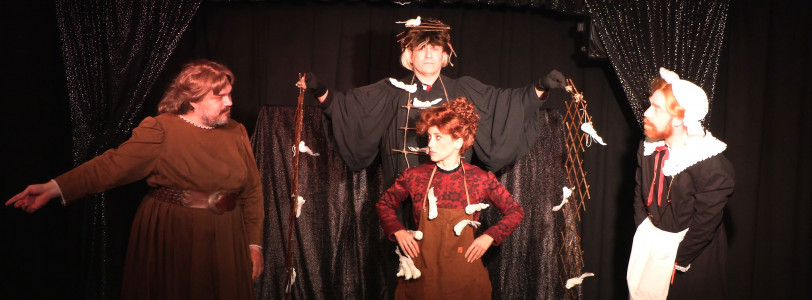Lottie Plachett stands accused of murdering her father and step-mother, taking on the role of Lizzie Borden, a real-life figure who was suspected and acquitted in 1892 of axe-murder.
This was a "camp comedy", and the writer spoke at the end about his desire to create queer retellings of famous stories. The play was funny, and did achieve this goal, with Lottie's gay brother being one of the main stand-out characters. He retained an unapologetic and comical appetite for men, even in the face of a homophobic father, and muddled his way through amusing mishaps such as accidentally breaking his costume and being left with only one hand.
The set up was intriguing, as the scenes switched between the court room where Lottie is being tried, and scenes in the house, watching the true story unfold. It was particularly funny when the court blamed the murders on her "monthly bleeds", depicting a scene where her ovaries took control of her brain and forced her to murder. The contrast of this scene and the final reveal of the truth was enjoyable, as Lottie's "crazy eyes" truly came to light.
Whilst this play was fun at times, it had the potential to be more. More comedy and more plot twists would have elevated the script from funny to hilarious. There were three main recurring comedic gags, and it would have been great to see some new ideas also come into play. They joked about Lottie's sexual love for her "daddy", about the fact that her brother was gay, and used a plethora crude language (e.g. by using words like "balls" for the names of the judges). These did elicit laughs, though there was plenty of time through the course of the hour to introduce different and more subtle jokes. The mix of adult content but more basic humour let this play down a little.







0 Comments